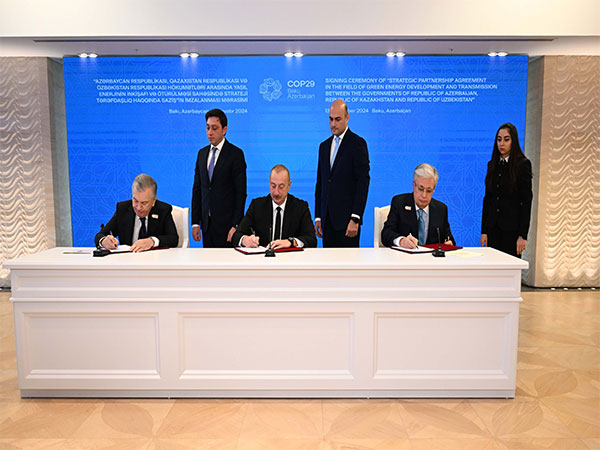Central Asian States Unite for Green Energy Revolution at COP29
Kazakhstan, Azerbaijan, and Uzbekistan have signed a landmark strategic pact for green energy production and transfer at COP29 in Baku, overseen by top-level leaders from each nation. This agreement aims to strengthen energy ties and enhance sustainability efforts, aspiring toward carbon neutrality by 2060.

- Country:
- Kazakhstan
In a landmark move toward sustainability, Kazakhstan, Azerbaijan, and Uzbekistan have forged an alliance focused on the production and transfer of green energy. This significant agreement was finalized during the COP29 conference in Baku, signed by the respective presidents of the three countries on November 13.
This groundbreaking accord was reached on the fringes of the World Leaders Climate Action Summit, part of the 29th Conference of the Parties to the UN Framework Convention on Climate Change. Kazakhstan's Presidential Press Office hailed the agreement as a crucial step toward energy integration and the establishment of reliable corridors for green energy exports to Europe and beyond.
The Asia Infrastructure Investment Bank noted that Kazakhstan is advancing swiftly in its green energy journey. President Tokayev emphasized the nation's commitment to achieving carbon neutrality by 2060, highlighting strategic partnerships and technological innovations aimed at reducing fossil fuel dependence. Simultaneously, Uzbekistan's President Mirziyoyev pointed out the benefits of solar and wind energy transfer in mitigating climate change effects. Energy ministers from the three countries and Saudi Arabia also signed a cooperation program to advance green energy development.
(With inputs from agencies.)










